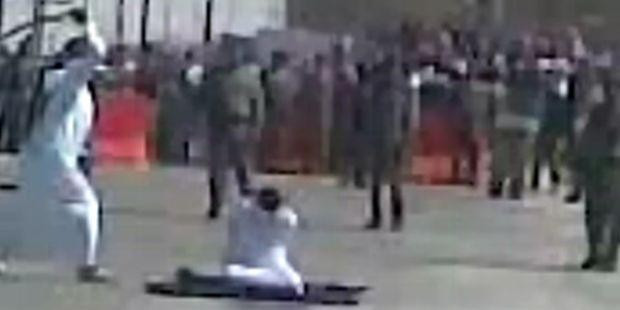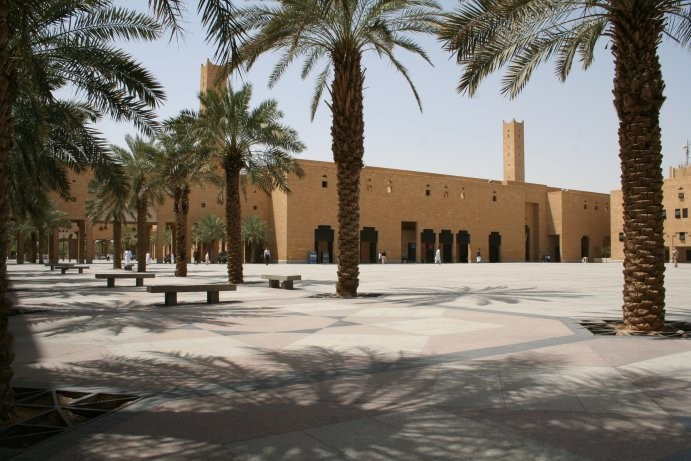Execution Central: Saudi Arabia's Bloody Chop-Chop Square

A Saudi court's decision to order the severance of a man's spine in an 'eye-for-an-eye' punishment has once more shined a light on Riyadh's violent judicial system.
Ali al-Khawahir allegedly paralysed one of his friends from the waist down when he was aged 14. After 10 years in jail a court in the town of Al-Ahsa ruled that al-Khawahir, now 24, is to receive the same treatment unless he pays 1 million Saudi riyals (£176,000) in compensation to the victim.
"Paralysing someone as punishment for a crime would be torture," commented Ann Harrison, Middle East and North Africa Deputy Director at Amnesty International.
"That such a punishment might be implemented is utterly shocking, even in a context where flogging is frequently imposed as a punishment for some offences, as happens in Saudi Arabia."
In accordance with a strict interpretation of Islamic law, Saudi's courts implement a series of corporal punishments, of which flogging is the softest.
Right hand amputation applies in cases of theft, whereas cross amputation - right hand and left foot - is prescribed for highway robbery.
"I use a special sharp knife, not a sword. When I cut off a hand I cut it from the joint. If it is a leg the authorities specify where it is to be taken off, so I follow that," Saudi Arabia's leading executioner Muhammad Saad al-Beshi once told Arab News in a rare interview.
Eye-gouging and tooth extraction are known to have been imposed on offenders sentenced in accordance with the concept of Qisas, or retribution.
Corporal punishments as well as capital executions - by beheading - are carried out in public or in prison, depending on the court ruling.
In the capital Riyadh, public executions take place in the central Deera square, usually at 9am. The wide ochre square has been grimly dubbed "chop chop square" has seen dozens of condemned men and women put to death in recent years.
"When they [death row prisoners] get to the execution square, their strength drains away. Then I read the execution order, and at a signal I cut the prisoner's head off," al-Beshi said.
According to Human Rights Watch, from January to September 2012, at least 69 people were executed in Saudi Arabia. Another 10 beheadings have been reported in just the first six weeks of 2013.
Beheadings are imposed mainly for murder or drug offences, but cases of apostasy (renunciation of one's faith), sorcery and witchcraft can also end up in Chop Chop square. Indeed a man named Muri' al-'Asiri was executed last year in the southern town of Najran, as punishment for being a sorcerer.
Lashing is carried out as the main or additional punishment for a wide range of offences, and can be imposed on men, women and juveniles. In 2011 a 13-year-old school girl convicted of assaulting a teacher was sentenced to 90 lashes, carried out in front of her classmates.

In 2009 Adam St Patrick wrote this account of witinessing a beheading at Deera Square, for The Walrus:
"At 9 a.m., the executioner gently lowers the blade to jab at the condemned's neck, which jerks the prisoner's body to attention. Then the real blow: the blade is drawn high up, then swung back down. It cleaves skin, muscle, and bone with a hollow, echoing thud. A lurid crimson waterfall chases the head to the granite with the sound of a wet rag being wrung out over a stainless steel sink. The body sways forward, snaps up, and slumps off to the right.
A loudspeaker lists the decapitated man's crimes: rape, drug trafficking, and possession. The executioner sheathes his sword. A thickly bearded soldier claps his hands and wipes them against each other in the air—that's it. By 9:05, the only other person in Chop Chop Square is a janitor, hosing down the granite."
READ: Saudi Arabia: Women Finally Allowed to Ride Bikes - as Long as Male Relative Present
© Copyright IBTimes 2025. All rights reserved.






















